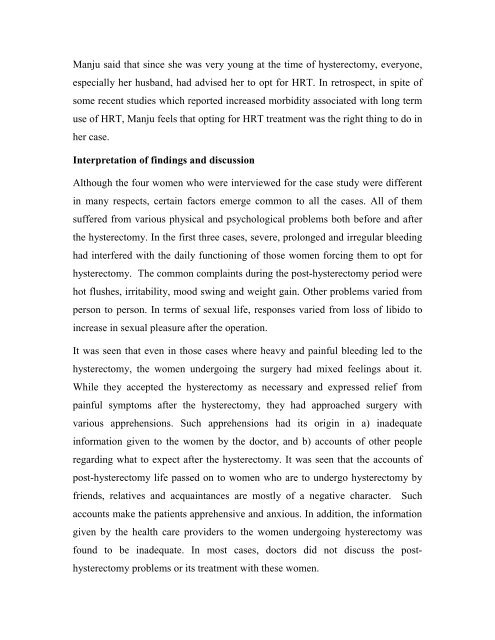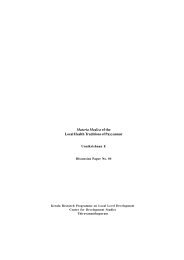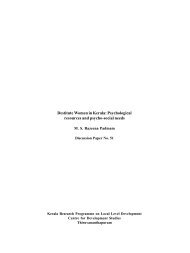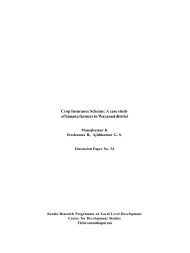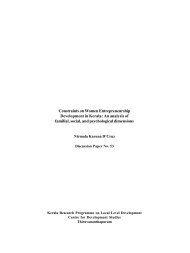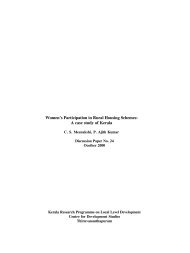Psycho-social problems of women who had undergone hysterectomy
Psycho-social problems of women who had undergone hysterectomy
Psycho-social problems of women who had undergone hysterectomy
You also want an ePaper? Increase the reach of your titles
YUMPU automatically turns print PDFs into web optimized ePapers that Google loves.
Manju said that since she was very young at the time <strong>of</strong> <strong>hysterectomy</strong>, everyone,especially her husband, <strong>had</strong> advised her to opt for HRT. In retrospect, in spite <strong>of</strong>some recent studies which reported increased morbidity associated with long termuse <strong>of</strong> HRT, Manju feels that opting for HRT treatment was the right thing to do inher case.Interpretation <strong>of</strong> findings and discussionAlthough the four <strong>women</strong> <strong>who</strong> were interviewed for the case study were differentin many respects, certain factors emerge common to all the cases. All <strong>of</strong> themsuffered from various physical and psychological <strong>problems</strong> both before and afterthe <strong>hysterectomy</strong>. In the first three cases, severe, prolonged and irregular bleeding<strong>had</strong> interfered with the daily functioning <strong>of</strong> those <strong>women</strong> forcing them to opt for<strong>hysterectomy</strong>. The common complaints during the post-<strong>hysterectomy</strong> period werehot flushes, irritability, mood swing and weight gain. Other <strong>problems</strong> varied fromperson to person. In terms <strong>of</strong> sexual life, responses varied from loss <strong>of</strong> libido toincrease in sexual pleasure after the operation.It was seen that even in those cases where heavy and painful bleeding led to the<strong>hysterectomy</strong>, the <strong>women</strong> undergoing the surgery <strong>had</strong> mixed feelings about it.While they accepted the <strong>hysterectomy</strong> as necessary and expressed relief frompainful symptoms after the <strong>hysterectomy</strong>, they <strong>had</strong> approached surgery withvarious apprehensions. Such apprehensions <strong>had</strong> its origin in a) inadequateinformation given to the <strong>women</strong> by the doctor, and b) accounts <strong>of</strong> other peopleregarding what to expect after the <strong>hysterectomy</strong>. It was seen that the accounts <strong>of</strong>post-<strong>hysterectomy</strong> life passed on to <strong>women</strong> <strong>who</strong> are to undergo <strong>hysterectomy</strong> byfriends, relatives and acquaintances are mostly <strong>of</strong> a negative character. Suchaccounts make the patients apprehensive and anxious. In addition, the informationgiven by the health care providers to the <strong>women</strong> undergoing <strong>hysterectomy</strong> wasfound to be inadequate. In most cases, doctors did not discuss the post<strong>hysterectomy</strong><strong>problems</strong> or its treatment with these <strong>women</strong>.


